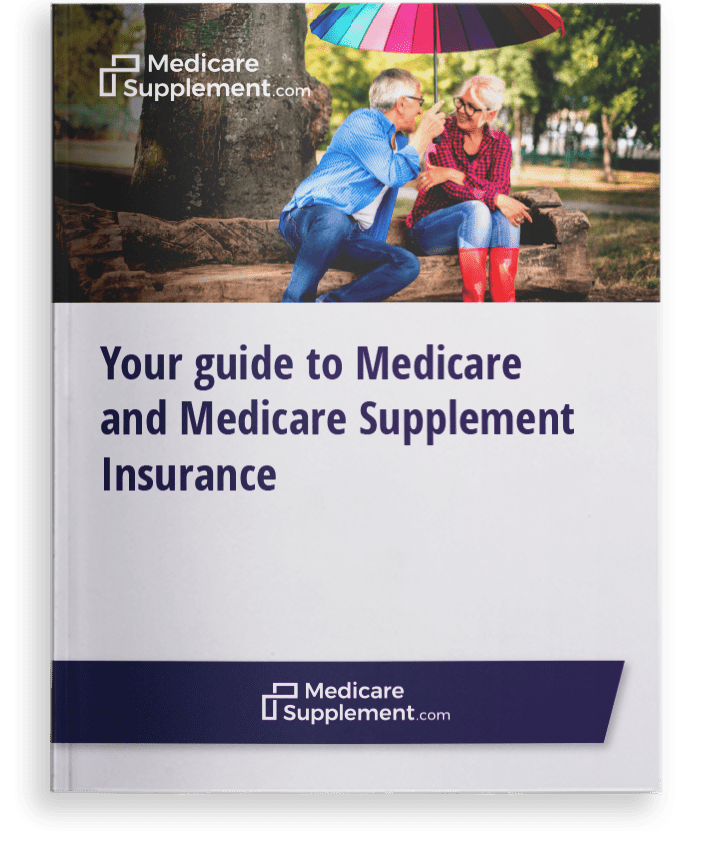Medicare 101
How Veterans Can Make Sense of Medicare and VA Benefits
You can have both VA benefits and be in enrolled in Medicare at the same time. Here's what you need to know to get the most out of your health care coverage.
Veterans who receive health care benefits through the U.S. Department of Veterans Affairs (VA) can also enroll in Medicare upon turning 65.
Because each offers different benefits, having both at your disposal will broaden your health insurance coverage options.
If you’re a veteran, it’s important to understand how VA benefits and Medicare work in tandem before you make the choice.

What Is Medicare VA?
Medicare and the Veterans Affairs (VA) are actually 2 separate entities that don't work together. Medicare won't pay for any care that you may receive from the VA and vice versa.
To receive coverage from the VA you generally must receive care from a VA facility.
Compare Medigap plans in your area.
Find a planOr call now to speak with a licensed insurance agent:
1-800-995-4219
What Are Veteran's Benefits?
If you served in active duty and were discharged or released under conditions other than dishonorable, you may be eligible for VA benefits.
-
The minimum duty requirements for VA benefits call for 24 months of continuous service, which also applies to members of the National Guard and the Reserves.
-
But because there are many exceptions to these requirements, such as whether you were discharged for a disability incurred during active service, the VA encourages all veterans to apply for VA health coverage.
All veterans who qualify for VA health benefits are assigned to a priority group numbered 1 through 8, with 1 being the highest and 8 being the lowest.
-
Your priority number, which depends on factors such as your income level and if you have a service-connected disability, determines everything from copayments to out-of-pocket costs to when you can schedule a medical appointment.
-
Regardless of the number, all veterans receive the VA’s Uniform Benefit Package, which includes services that Medicare doesn’t offer.
Should Veterans Enroll in Medicare?
The VA’s health care package and Medicare are two distinct programs. They do not work together, but rather, alongside one another.
While the VA’s plan provides veterans with benefits that Medicare does not offer, such as dental coverage and long-term nursing care, your medical costs are only covered if you receive care at a VA facility, or at a non-VA facility with prior authorization from a VA doctor.
Having both VA benefits and Medicare insurance broadens your coverage to include Medicare-approved hospitals and doctors.
The VA usually encourages veterans to enroll in both Medicare Part A (hospital insurance) and Medicare Part B (medical insurance).
-
You typically don't have to pay a premium for Part A, while the standard Part B premium for 2024 is $174.70 or higher, depending on your income.
-
Part B covers Medicare-approved doctor’s services and outpatient services, so what you spend on Part B premiums may save you money in the long run.
There are a few advantages to enrolling in Medicare if you already have VA benefits:
-
In the case of an emergency, you may be taken to a non-VA facility. If you don’t have Medicare, you will be responsible for covering the costs.
-
The VA health plan depends on the annual appropriation of funds by Congress. From year to year there is no guarantee of sufficient funds to cover all priority groups.
-
Even if all your medical needs are presently met by VA doctors, there may come a time when you will require care from a non-VA provider.
-
If you don’t enroll in Part B when you’re first eligible and later change your mind, you will likely have to pay an ongoing late-enrollment Part B premium penalty of 10% for every 12-month period that you didn’t have it.

Compare Medigap plans in your area.
Find a planOr call now to speak with a licensed insurance agent:
1-800-995-4219
How Should Veterans Receive Prescription Drug Coverage?
The VA’s prescription drug plan typically offers a more generous benefits package than Medicare Part D, the program's prescription drug benefit. The VA covers the cost of drugs that you get at VA pharmacies, while Part D covers those that you get at in-network pharmacies.
The VA’s drug plan is considered creditable coverage, meaning it’s as good or better than Medicare’s drug coverage, so veterans who later choose to enroll in Medicare Part D can do so without incurring a late enrollment penalty.
If you lose your VA benefits, you’ll have 63 days to enroll in a Part D plan before that penalty kicks in.
There are several reasons why a veteran would choose to supplement his or her VA drug plan with Medicare Part D:
-
If you are prescribed a drug by a private clinician or a Medicare Part B-approved doctor, the VA will not cover the cost of that drug without additional authorization from a VA provider.
-
If you enter a non-VA nursing home, you may want to get your drugs at the in-house pharmacy. A Part D plan could cover the cost of those drugs.
-
If you live far away from a VA facility or are suddenly in need of medicine, you may find it easier or necessary to go to a non-VA pharmacy.
-
If you have a low income, you may find that Medicare’s low-income subsidy (LIS) program Extra Help for Part D beneficiaries will lower your overall drug costs.
You can compare Part D plans available where you live and enroll in a Medicare prescription drug plan online when you visit MyRxPlans.com.1
Enroll in Medicare Part D at MyRxPlans.com.
Vist MyRxPlans.comCombining VA Benefits, Medicare and a Medigap Plan
Just because you have both VA benefits and Medicare doesn’t mean all of your medical costs will be covered free-of-charge.
-
In addition to the 2024 Medicare Part A deductible of $1,632 per benefit period, coinsurance for hospital stays lasting longer than 60 days starts at $408 per day in 2024.
-
Moreover, after meeting your 2024 Part B deductible of $240 per year, you will likely be responsible for covering 20% of your medical costs.
A veteran may choose to supplement their Medicare coverage with a privately administered Medigap Insurance plan (also called Medicare Supplement Insurance), which helps cover the out-of-pocket costs associated with Medicare, such as deductibles, copayments, coinsurance and other fees.
Whether or not VA benefits alone provide enough coverage will depend on the individual and his or her unique medical needs. It's a good idea to speak to someone about your VA benefits to determine if you need a Medicare Supplement Insurance plan.
For more information about Medicare Supplement Insurance plans, call to speak with a licensed health insurance agent today.
Compare Medigap plans in your area.
Find a planOr call now to speak with a licensed insurance agent:
1-800-995-4219

Get a Free Medicare Guide!
Enter your email address and get a free guide to Medicare and Medicare Supplement Insurance, as well as important Medicare news and tips. We promise to never send you spam – just helpful content!
By clicking "Get your guide" you are agreeing to receive emails from MedicareSupplement.com.

